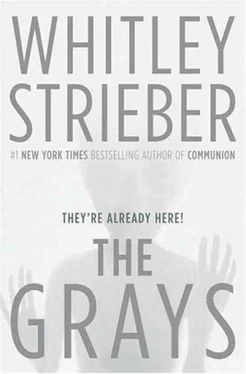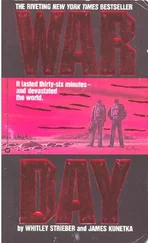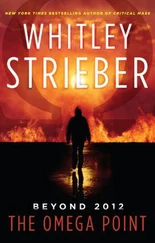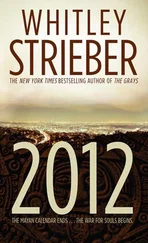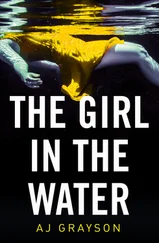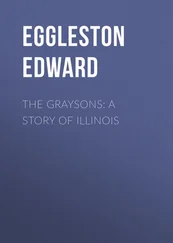Crew got an arm free from beneath Wilkes’s weight, reached up, and tore at his ear. For a moment, nothing happened. With all the strength he possessed, he pulled harder. Wilkes growled through his bared teeth. His head twisted to one side, slowly, slowly. Then, suddenly, Crew could not breathe. He saw blackness coming around the edges of his eyes, deep, warm blackness.
Eight thousand miles away in Cairo, the pyramids lay beneath a night sky choked with smog. Around them, the city roared, an onrushing cataract of light and noise. A furtive jackal that haunted the edge of a nearby slum raised its head, cocked its ears, and whined. Dogs in the flat houses that hugged the pyramid compound began to pace. An old man who had been tending a smoky kerosene heater paused, looked up, then got a ladder and climbed up to his roof.
Crew drew up both his legs, and kicked Wilkes so hard that he flew into the air. He hit hard but rolled, moving with distressing agility. Crew fought for breath, managed to pull himself to his feet. His throat was partly crushed. He cut off the pain as best he could, concentrating his attention in his crashing heart, willing it to beat strong and steady. He waited, watching for movement in the dust, insisting to himself that he would not die here.
After a time, he began to hope that the silence he was listening to was the silence of death. Had he won? He watched a last shaft of sunlight creeping across the part of the floor he could see, sunlight that rendered the wheat dust golden. The smell of this place, the dry, faintly sweet odor of grain, reminded him of home.
He closed his eyes and concentrated on getting strong enough to get out of here. Only after some moments did he become aware that there was breathing that had not been there a moment before, and that it was very close.
Wilkes hammered him in the face so hard that Crew saw an explosion of lights, immediately followed by a curious sort of darkness. He tried to raise his right arm but it would not come up.
Fingers explored around his neck again, this time with tremendous speed and power. With a shuddering crackle, his windpipe was collapsed.
In Cairo now, feral dogs howled, jackals yapped and paced, and the old man in his white soutane and fez crossed his arms over his chest in a gesture that would have been familiar to the pharaohs, and bowed his head toward the Great Pyramid.
Closer to the structure, a guard looked up from his charcoal brazier and frowned. He called to his companion. Both turned toward the pyramid. They saw, along its vast side, a spatter of pure white sparks. Coming as if from the throat of the Earth itself, a vibrating hum shivered the two men from within.
They ran.
Crew was dead. He was still moving, but nothing would enable him to breathe again. Mike watched him, smiling with an artist’s gentle amazement at his completed work.
Crew’s air hunger increased. His thoughts were distant and unreal. The anguish of suffocation made him frantic, made his sphincters release, and he shat and pissed himself, and rolled in agony on the floor.
Mike positioned himself and kicked Crew so hard that his head, flying back, caused his neck to snap. He looked down at the sprawled body, then pushed at it with his foot to confirm the obvious.
He went to the door, opened it, and took two small bottles out of his trousers. One was cracked and oozing. Carefully, he collected the thick liquid in the palm of his hand. He poured the dark purple contents of the other bottle onto the floor, making a tiny hill of the crystals. Then he poured the glycerin from his palm over the potassium permangenate. He stepped out through the door and was gone.
As he sailed the ancient lays of the Earth, Crew felt absolutely nothing. Objectively, he knew that he was dead, but this had lost its importance.
In Cairo, the pyramid flickered with blue light. People came out onto the roofs of houses, stopped their cars in the streets, stared at the midnight spectacle. Dogs barked wildly, jackals sang, tourist camels boomed, and horses tossed their scruffy manes.
Crew knew he had reached the place of ascension, he felt it as a warmth caressing him. All pain fell away and all memory of pain.
A tourist who had bribed the guards to let him spend the night in the king’s chamber leaped out of the sarcophagus as it filled with blistering incandescence.
The old man on his roof moved round and round in an ecstasy of graceful concentration, dancing a dance that had been handed down across the generations, not among the Arab invaders of Egypt, but in the secret Sufi ways that were drawn from the old religion, the hidden science that had last sent souls across the chasm of space when Akhenaten and Nefertiti had gone home.
A light so great that it dimmed the glare of Cairo itself then filled the air. The very stones of the pyramid glowed as if on fire from the inside.
People screamed, dogs howled, the jackals writhed in agony.
Then, darkness.
All returned to normal. The old man bowed again toward the pyramid. Smiling a toothless smile, he went back down to tend his broken heater.
An image formed in Crew’s memory, of the scents and lights and caresses of home. He turned his face heavenward, following the golden thread of love more and more swiftly. Soon he saw a gentle rain of stars, and knew that this was the passing void of heaven itself. For a few timeless moments, he traveled the perfect physics that was long ago devised for the journey of souls.
Then he saw the wheeling immensity of the galaxy, a crystal conflagration of stars in blue, white, red, yellow, green, large and small, spread across the silence.
Below him came the gigantic horizon of a planet, as he sailed out of darkness into the sunlit side. Now he saw broad lands, farms in silver morning.
He let the weight of his love draw him downward. Soon he could make out individual farmsteads, their thatched roofs clustered together beneath ancient trees. Then he could see, far away, the White City shimmering on the horizon, and carts in the roads going toward it laden and returning empty. Dropping closer, he could hear the great auris singing as they passed one another on the road, and their drovers humming the tunes that gentled their raucous dispositions.
He came to his own farm, saw it spread below him, its fields rich with bowing wheat. The love he felt was so great that it made him glow, and he heard voices rise below. They could see him coming, a shaft of light dropping down out of the sky. He heard his sons’ shrill voices and his wife’s cries of alarm and joy.
Then he was over the cool room, set partly in the earth, where his return would take place. He dropped down though the roof, which felt like a sort of smoke of straw. Below him now was a body on a stone table. It was his own body, indistinguishable from the one the humans called “Crew.” It was naked, this body, lovingly groomed.
The next thing he knew, he was looking out of its blinking eyes. The room was lit by flickering candlelight. He inhaled. Perfect air, clear, faintly scented with the odor of his wife. He lay naked on the familiar stone table. His wife, looking tired in her sweated muslin work clothes, gazed down at him.
She bent to him, then, and kissed him long, and he was home.
A FLASH FILLED THE AIR, as if a gigantic flashbulb had gone off in the sky. Conner began to count, “One, two, three, four—”
“What the hell?”
“Shh! Six, seven—”
A long roar rolled in, full of thuds deeper than thunder.
Conner looked from Dan to his mother. “The grain elevator just exploded,” he said. It had to be that, unless somebody had dropped a very large bomb on little Wilton, Kentucky. Nothing else in town was big enough.
The phone rang. Conner snatched it up. “Hey, Paulie! I know. Okay!” He pointed out the kitchen window. Katelyn saw a great mushroom of smoke rising in the direction of Wilton.
Читать дальше
